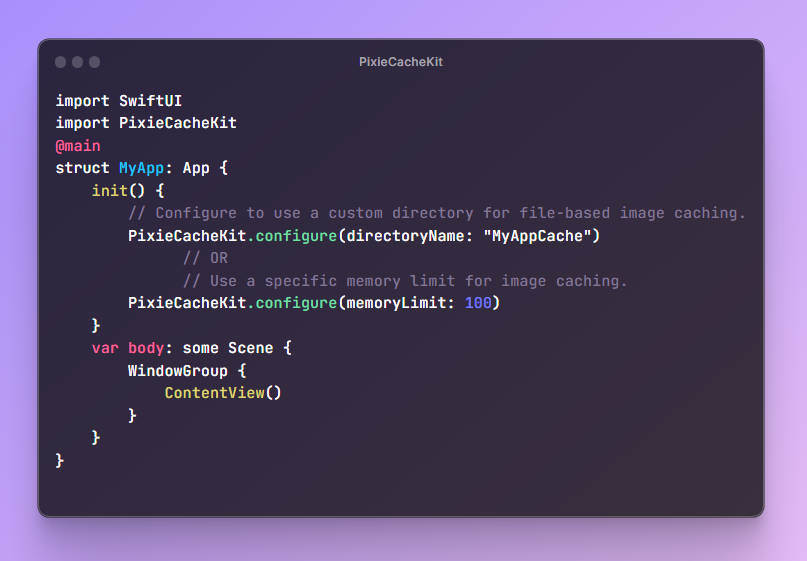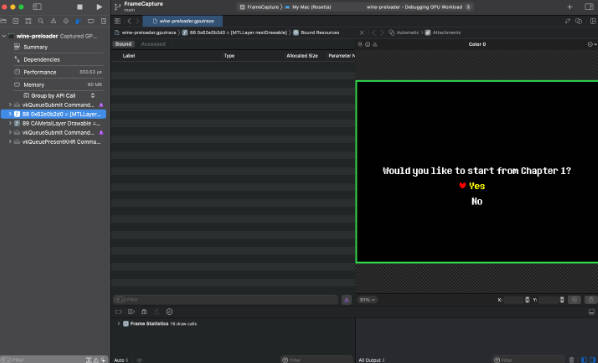swift-cache
A type-safe swifty wrapper around NSCache.
Getting Started
Add swift-cache as a dependency to your project using SPM.
.package(url: "https://github.com/binaryscraping/swift-cache", from: "0.1.0"),
And in your application/target, add "Cache" to your "dependencies".
.target(
name: "YourTarget",
dependencies: [
.product(name: "Cache", package: "swift-cache"),
]
)
Usage
Cache is accessed through a Cache.Key type, so start by defining your keys.
extension Cache.Key where Value == String {
// A key that stores a string value.
static let myKey = Cache.Key("my_key")
}
Instantiate a live implementation of the cache type.
let cache = Cache.live()
Insert
cache.set("string value", at: .myKey)
You can provide an optional lifetime in seconds for the entry.
cache.set("string value", at: .myKey, lifetime: 60)
Retrieve
let value = cache.retrieve(at: .myKey)
Remove
cache.remove(at: .myKey)
Usage in tests
This library provides some helpers for easy usage on tests such as:
Noop
An implementation of Cache that does nothing when called.
let cache = Cache.noop
Failing
An implementation of Cache that fails with an XCTFail call.
var setEntryCalled = false
let cache = Cache.failing
.override(
setEntry: { entry, key in
setEntryCalled = true
}
)
cache.set("string value", at: .myKey)
XCTAssertTrue(setEntryCalled)
At the code snipped above all calls to a method that wasn’t overriden will terminate with a XCTFail.




